Inference-Based Cognitive Behavioral Therapy for OCD: A New Approach to Managing Obsessive-Compulsive Disorder
Introduction
Obsessive-Compulsive Disorder (OCD) is a complex mental health condition that affects millions of individuals worldwide. It is characterized by intrusive and distressing thoughts (obsessions) and repetitive, ritualistic behaviors (compulsions). While traditional Cognitive Behavioral Therapy (CBT) has been effective in treating OCD, a newer approach called Inference-Based Cognitive Behavioral Therapy (IB-CBT) is gaining recognition for its effectiveness in targeting the core cognitive processes underlying OCD symptoms.
Understanding Inference-Based Cognitive Behavioral Therapy (IB-CBT)
Inference-Based Cognitive Behavioral Therapy (IB-CBT) is an evidence-based treatment approach specifically designed for individuals with OCD. It incorporates elements of traditional CBT while focusing on addressing specific cognitive biases and faulty reasoning patterns that contribute to obsessive thoughts and compulsive behaviors.
The central idea behind IB-CBT is that individuals with OCD often engage in a process called inferential confusion. This means they have difficulty distinguishing between their own intrusive thoughts and the likelihood of those thoughts becoming reality. These individuals may falsely perceive that their thoughts have more significance or are more likely to come true than they actually are.
Components of IB-CBT
Psychoeducation: IB-CBT begins with a comprehensive understanding of OCD and its underlying cognitive processes. The therapist educates the individual about the nature of obsessions, compulsions, and the impact of cognitive biases on their thoughts and behaviors.
Identifying Cognitive Distortions: IB-CBT helps individuals recognize and challenge cognitive distortions such as catastrophizing, overgeneralization, and black-and-white thinking. By identifying these thinking patterns, individuals can learn to differentiate between irrational thoughts and realistic probabilities.
Inference Training: This component of IB-CBT focuses on helping individuals develop skills to distinguish between intrusive thoughts and actual threats. Through cognitive exercises and guided questioning, individuals learn to evaluate the evidence supporting their beliefs, examine alternative explanations, and assign more accurate probabilities to their intrusive thoughts.
Exposure and Response Prevention (ERP): Like traditional CBT, IB-CBT incorporates exposure and response prevention techniques to help individuals confront their fears and gradually reduce compulsive behaviors. However, IB-CBT integrates inference training during the exposure process, enabling individuals to challenge their cognitive biases while facing their fears.
Strengthening Adaptive Coping Strategies: IB-CBT emphasizes the development of adaptive coping strategies by helping individuals identify healthier ways of responding to their intrusive thoughts and internal experiences. This may include mindfulness, problem-solving techniques, and self-compassion exercises.
Benefits of IB-CBT for OCD
Targeted approach: IB-CBT directly addresses the cognitive processes and cognitive biases specific to OCD, providing tailored interventions to challenge and modify faulty thinking patterns.
Long-term effectiveness: By targeting the underlying cognitive processes of OCD, IB-CBT aims to bring about more lasting relief from symptoms. It equips individuals with skills to challenge and reevaluate their thoughts even after therapy concludes.
Holistic treatment: IB-CBT combines elements of traditional CBT, exposure therapy, and inference training, providing a comprehensive and integrative approach to treating OCD.
Increased insight and self-awareness: Through the inference training component, IB-CBT helps individuals gain a better understanding of their own thinking processes, allowing them to approach their obsessions and compulsions with greater clarity.
Conclusion
Inference-Based Cognitive Behavioral Therapy (IB-CBT) offers a promising approach to managing Obsessive-Compulsive Disorder (OCD). By targeting the cognitive biases and faulty reasoning that contribute to OCD symptoms, IB-CBT equips individuals with the tools to challenge irrational thoughts and beliefs. While traditional CBT remains an effective treatment option for OCD, IB-CBT provides a specialized approach that may offer additional benefits in promoting long-term recovery and improving overall quality of life for individuals with OCD. If you or someone you know is struggling with OCD, consider exploring IB-CBT as a potential treatment option with a qualified mental health professional.
Looking to start treatment for OCD? Schedule a free treatment consultation now with one of our OCD specialists.
References:
Veale, D., Casey, F., & Reid, P. (2008). Understanding Body Dysmorphic Disorder: A Guide for Mental Health Professionals. Wiley.
Freeston, M., Ladouceur, R., Thibodeau, N., & Gagnon, F. (1997). Cognitive intrusions in a non-clinical population. I: Response style, subjective experience, and appraisal. Behaviour Research and Therapy, 35(11), 937-949.
Freeston, M., Rhéaume, J., Letarte, H., Dugas, M., & Ladouceur, R. (1994). **Why do people worry? Personality and Individual Differences, 17(6), 791-802.
